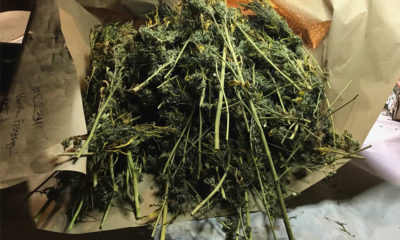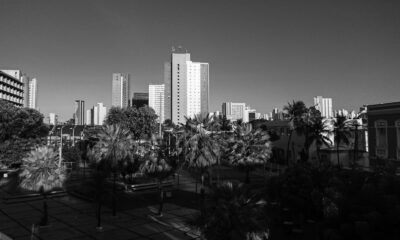
Economics
California Pot Farms Dealing With Fires & Blackouts Get Tax Relief
When California declares a state of emergency, businesses are given leeway around tax deadlines and interest payments.
For the past few years, “harvest season” has too quickly morphed into “fire season” in Northern California. This year has been no exception, as some of the world’s best cannabis growers have faced evacuations from a huge fire in Sonoma County and days-long blackouts as the region’s largest electricity provider PG&E shut off power to prevent downed power lines sparking another fire.
However, in light of the fires and blackouts that have impacted California this year, the California Department of Tax and Fee Administration will provide some relief to cannabis farmers across the state caught up in the events. Because Gov. Gavin Newsom declared a state of emergency across the entire state, business owners across California are eligible to receive “the extension of tax return due dates, relief of penalty and interest, or replacement copies of records lost due to disasters.”
For places like Mendocino County, where fires now seem to rage annually, this is the fifth time since 2017 that CDTFA has provided such relief. Thirty-two other special tax categories in addition to cannabis will also see relief.
As with other recent fire seasons, Sonoma County’s cannabis industry seems to be taking the brunt of the devastation. This year, it’s the Kincade Fire. The fire has now raged for over a week and scorched 77,758 acres, according to CalFire’s most recent incident update. Most of the 352 structures destroyed and over 1,600 still threatened are residential, but farmers on the tail end of harvest season certainly are dealing with the threat of their crop smoked out.
An army of almost 5,000 firefighters that includes 105 hand crews backed by 543 engines, 15 helicopters and 66 bulldozers have contained the fire at 68%, as of Nov. 1. The firefighters don’t fully expect to contain the fire until Nov. 7. On a positive note, nobody has yet lost their life to the fire, but four first responders have been injured fighting the blaze.
So why do fires like this impact the cannabis industry so hard? Located near the Kincade Fire, Santa Rosa is the last big city as travelers head north towards from San Francisco to the Emerald Triangle and basically the last until Portland. The labor power that Santa Rosa is able to provide has seen the city become a hotbed for distribution companies that deliver cannabis around the state from their wine country headquarters. It’s definitely not unreasonable to think a big portion of the cannabis being produced in California is passing through Santa Rosa’s warehouses or down Highway 101 to the San Francisco Bay Area and then on to Los Angeles.
The fires also impact cannabis that’s still in the field. Lots of pot is now in the most delicate and important stage of all: drying and curing. Every year, plenty of great weed gets messed up after it’s chopped down, and now this year, farmers have had to deal with a big wrench in their plans.
Even if they weren’t directly impacted by the fires, PG&E’s effort to prevent more infernos across the state was essentially rolling blackouts, as to not give their transmission lines the opportunity to spark anything up if they fell on fire-prone dry trees. There is nothing more important to the drying and curing process than temperature and humidity control, and as anyone who has even thrown a residential aid conditioner in the window would probably guess, the commercial-grade climate control systems it takes to effectively dry acres-worths of marijuana use a lot of electric power.
In recent weeks, many farmers did whatever they had to do to save their crop. Whether it was bringing in $30,000 dollar propane generators or doing laps back and forth to the gas station when something larger wasn’t applicable or possible, the process of keeping crops viable was an expansive one at the end of season where they’ve already dished out big bucks.
TELL US, have you been affected by the blackouts and fires in California?























